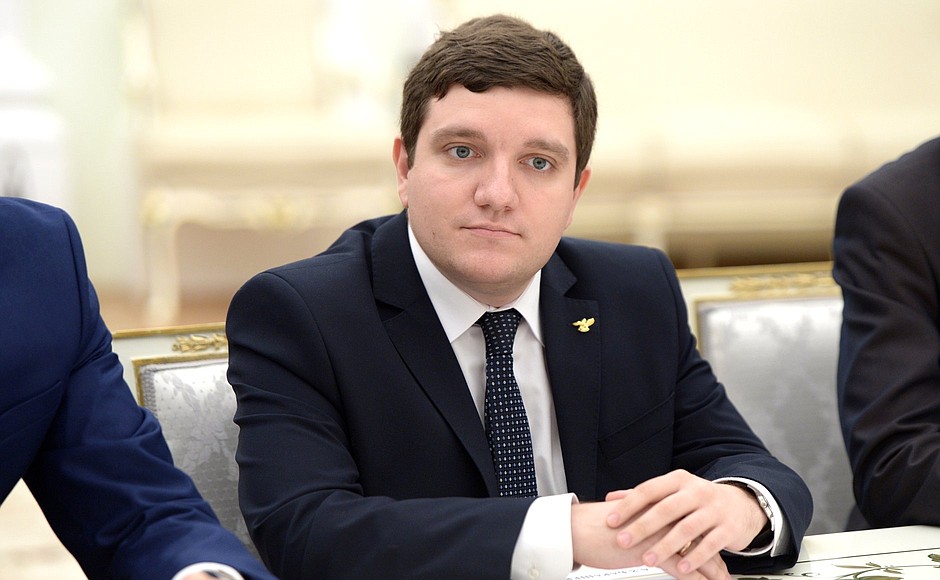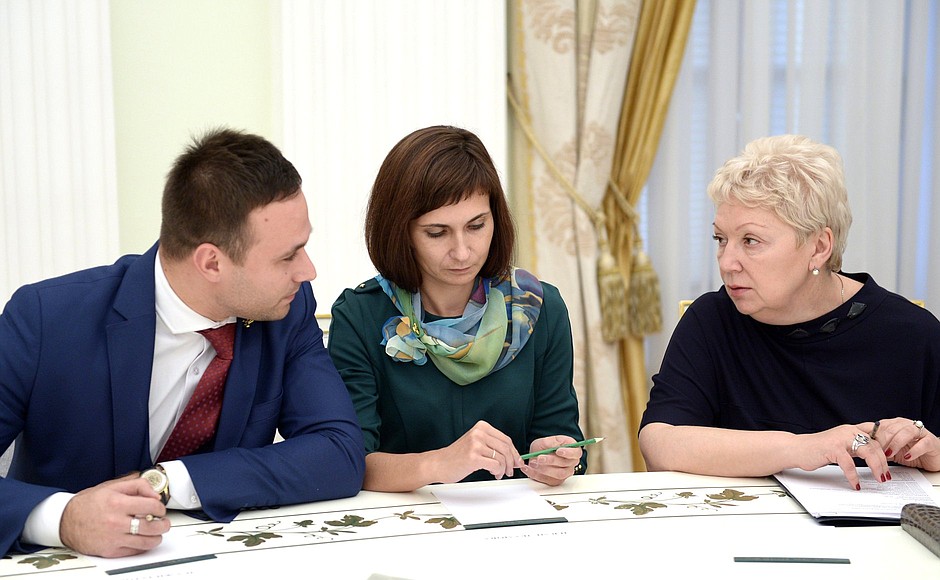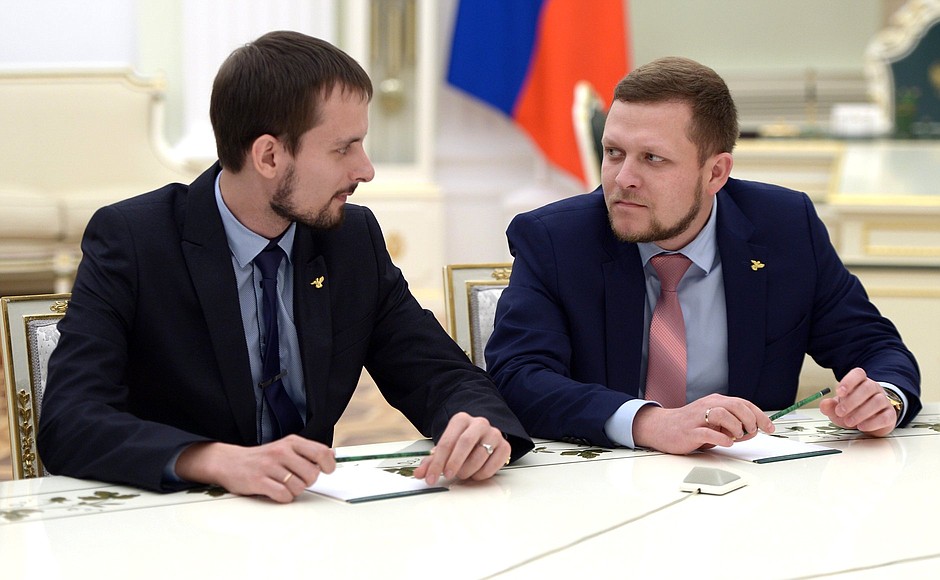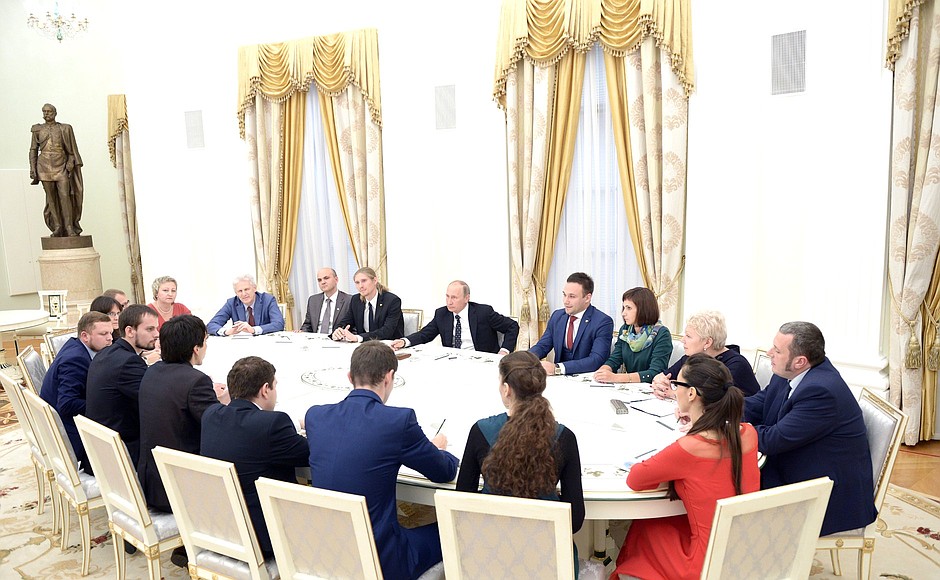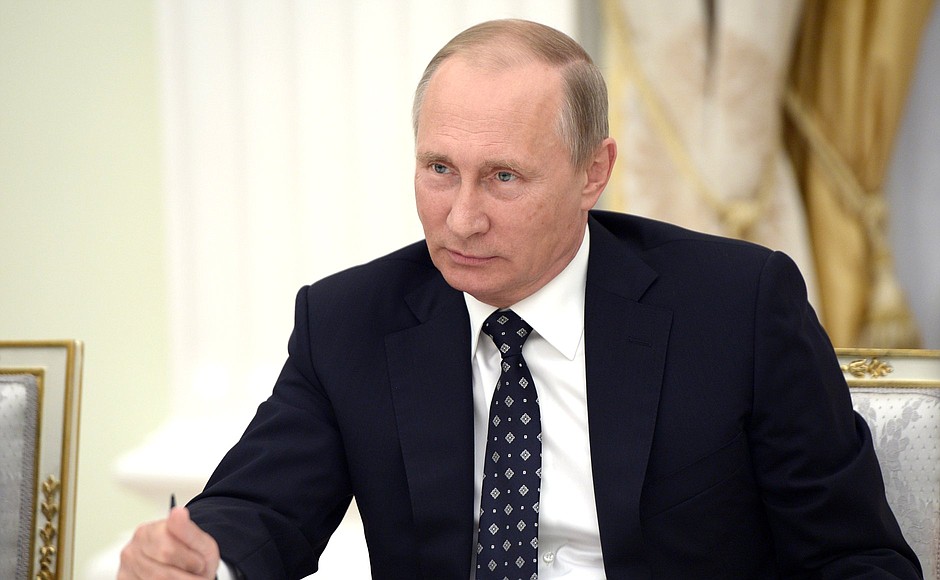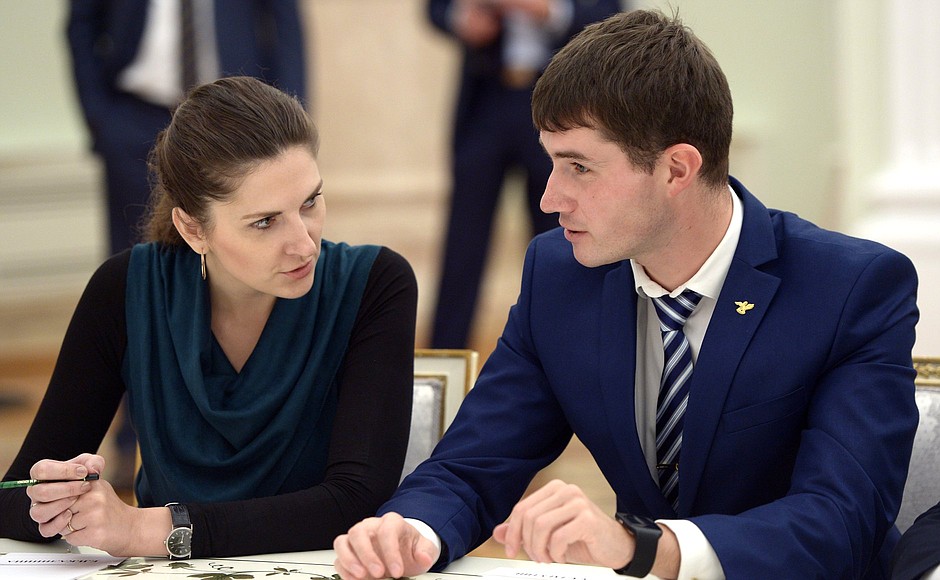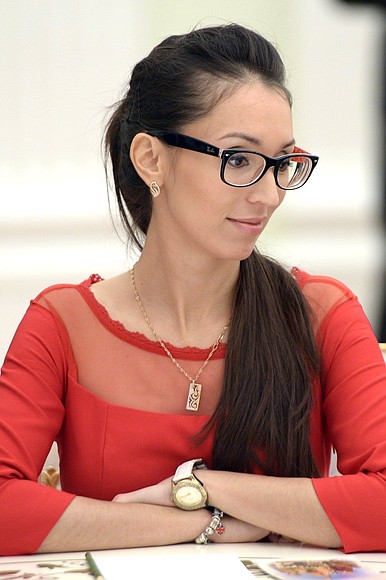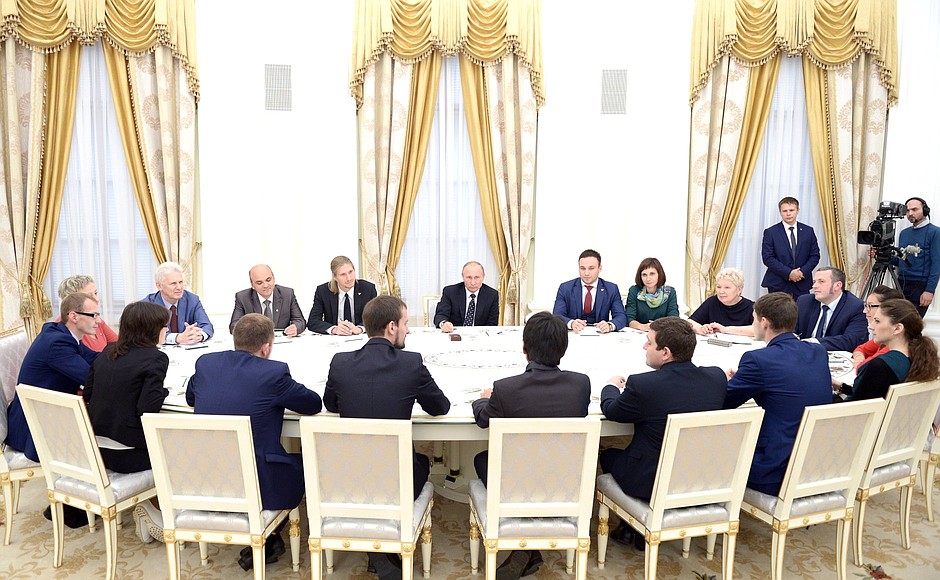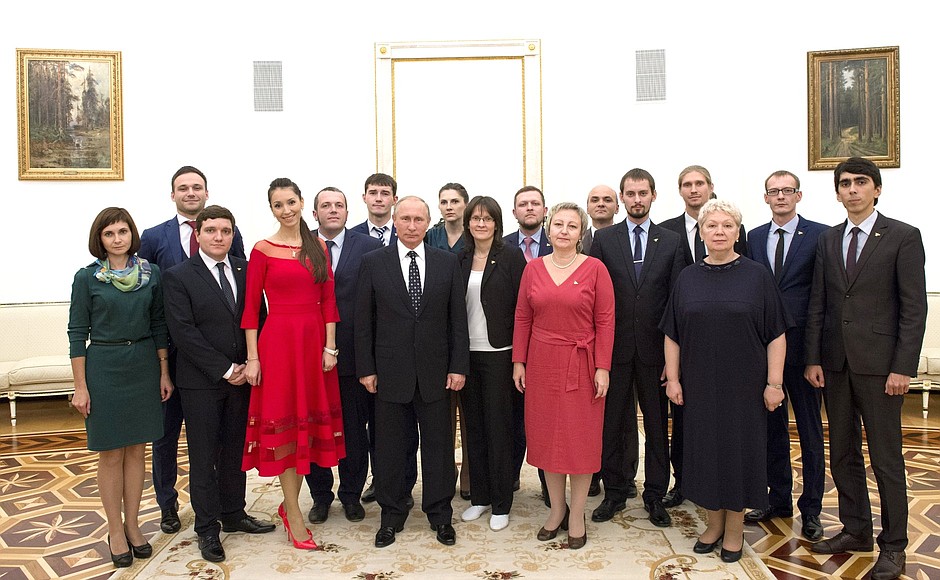The annual national contest was established in 1992 by the Russian Ministry of Education and Science, the Russian Trade Union of Education Workers and Uchitelskaya Gazeta newspaper. Eighty-five teachers competed in the finals this year. For the first time in the contest’s history, all Russian regions sent in their participants.
The name of the absolute winner, Russian language and literature teacher from Krasnodar Territory Alexander Shagalov, was announced on October 3 at the award presentation ceremony at the State Kremlin Palace.
* * *
President of Russia Vladimir Putin: Friends, I am very pleased that you, the winners of the Teacher of the Year contest, are here on Teacher’s Day.
I believe that with every year, the jury faces a more difficult choice because teachers corps is getting younger, which we can see from today’s attendance. The average age of school teachers is 37, which is a good indicator. Moreover, their quality is improving.
I know that it is not just a job for you but a vocation and an art. You devote all your free time to this art and this is very good. It is the only way to make remarkable progress in any area especially in one like yours, which requires such great dedication.
This vocation is certainly unique because passing on knowledge and raising young people and children is an extremely demanding and important task, very subtle work that requires huge commitment, knowledge and skill. Of course, there must be an inner stimulus and motivation for the best result.
This is common knowledge, yet I will say a few words about it. It is very difficult to gain prestige and to attain meaningful and tangible results in your profession in the modern world considering the huge amount of information and opportunities that are available to everyone. This is good, but this also poses difficulties and entails risks, especially for young people and teenagers. You not only need to be secure in your beliefs but also know how to help young people to see the difference between real values and the froth that is not worth their attention and should be disregarded.
What matters in this context is not just the academic environment to which you should attract young people and encourage them to increase this knowledge, but also a balance that should include the humanities, history, education per se, science, as well as our traditions, culture and the arts.
There are many opportunities for this, because nearly all regions are creating science parks for children and young people. It would be very good if schools joined these efforts and also cooperated with organisations where young people would continue their education or find employment, such as industrial enterprises, cultural institutions and universities. This is multilevel, multifaceted and very interesting work.
I do not know if there is anything more interesting than this. Working with children is a responsible, difficult and complex occupation, but it is very interesting to see how your intellect and strong will help them to develop as good human beings. This is true happiness. I envy your ability to do this, and I wish you success.
